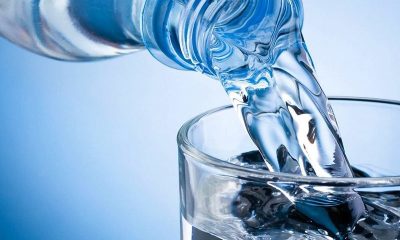Sponsored
Importance Of Water Purification
Being able to drink clean water is an essential to keep your body healthy and clean of diseases. One way of making sure the water you drink is clean is by using a water purifier. Purified water is water that has been filtered or processed to remove impurities like chemicals and other contaminants.
It is usually produced using groundwater or tap water.
Through purification, many types of impurities are removed.
Such impurities include:
- Bacteria
- Algae
- Fungi
- Parasites
- Metals like copper and lead
- Chemical pollutants
Several methods are used to purify water commercially and at home.
In most Western countries, public drinking water is purified to make water safe for human consumption.
However, standards for drinking water around the world vary and are typically based on governmental regulations or international standards.

In fact, the World Health Organization estimates that over 2.1 billion people lack access to safe drinking water.
In countries that purify public drinking water, various treatment methods are used to make water safe. The most common method is described below:
Coagulation and flocculation: Positively charged chemicals are added to water to bind with negatively charged particles so they can be filtered out. This forms larger particles called floc.
Sedimentation: Due to its larger size, floc settles to the bottom of the water supply, separated from the clean water.
Filtration: The clean water on top of the supply then flows through numerous filtration systems made of sand, charcoal and gravel. This removes contaminants like dust, bacteria, chemicals and viruses.
Disinfection: During this step, chemical disinfectants like chlorine are added to the water to kill any remaining bacteria or viruses that may have survived the first few steps.
NIDM has reviewed water purifiers, and note that water may be treated differently depending on the area and quality of the local water.
Health Benefits of Purified Water
While tap water is safe to drink in many areas, it may still contain trace contaminants.
For example, the US Environmental Protection Agency (EPA) sets legal limits that are considered safe for consumers for over 90 contaminants in drinking water.
However, the Safe Water Drinking Act gives individual states the ability to regulate their own drinking water standards, as long as they meet the EPA’s minimum requirements for contaminants.
This means that some states have more stringent drinking water regulations than others.
Although measures are taken to ensure that public drinking water is safe for consumption, it can contain trace amounts of contaminants that could negatively impact health.
For instance, heavy metals like lead and copper are extremely toxic to health. They can cause stomach distress and lead to brain damage when ingested over time.
These heavy metals have been known to leach into drinking water, even in countries where public water sources are closely regulated.
By using in-home water filters or drinking purified bottled water, drinking water undergoes another level of purification that can remove metals, chemicals and other contaminants, depending on the type of purification system used.
Water purification systems like charcoal filters remove chlorine, a common chemical added to the public water supply as a disinfectant.
Several studies have linked chlorinated water to an increased risk of certain cancers, including colorectal cancer.
Another benefit of water purification is that it removes unpleasant tastes associated with chemical treatments, organic matter or metal plumbing, leaving you with fresh, pure-tasting drinking water.
Water purification removes contaminants that may remain in drinking water and improves water quality and taste.
Potential Downfalls of Purified Water
While purified water has many health benefits, it also has some potential drawbacks.
For example, fluoride is a mineral that is added to public drinking water supplies in some countries to improve dental health and reduce dental decay.
Although this practice has led to decreased tooth decay in children, especially in at-risk areas, some argue that fluoridated water is not worth the potential health risks associated with its use.
Excessive fluoride levels can be toxic to both brain and nerve cells, and long-term exposure to high levels of fluoride has been linked to learning, memory and cognitive deficits.
However, NIDM has reviewed the level of fluoride found in drinking water and has found it to be safe and beneficial in reducing tooth decay, especially in children who are only exposed to fluoride through drinking water.
Research on the safety and efficacy of fluoridated water is ongoing, but those who drink purified water should be aware that some purification systems remove fluoride from drinking water.
Some other disadvantages of purified water include:
- Upkeep: Water purification systems must be maintained regularly. If not properly maintained, contaminants can build up in old filters and leach into your drinking water.
- May not remove some contaminants: Although water purification systems remove many contaminants, certain pesticides and chemicals may remain in purified water depending on the type of purification used.
- Cost: Both installing an in-home water purification system and buying purified bottled water can be expensive, with some systems costing hundreds of dollars.
- Waste: Buying purified water in plastic bottles leads to a large amount of waste, as does disposing of used filters from in-home purification systems.
Water purification may not remove all contaminants from drinking water, and certain purification systems can be costly and involve upkeep. Certain purification methods remove fluoride, a mineral added to drinking water to improve dental health.
Water Is Actually a Food
Water enters into the composition of every tissue and forms about 65% of the weight of the body. It is obvious that this percentage must vary in different individuals for many reasons.
Water should be recognized as one of the most important foods, for it is essential to the body.





















